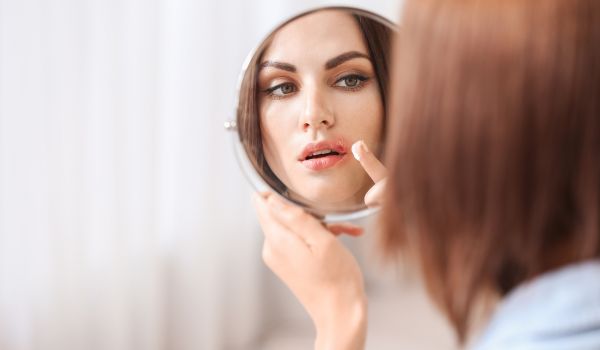How Long Do Cold Sores Last? Best Treatments and Remedies to Heal Faster
Cold sores, also known as fever blisters, are those irritating, tiny blisters that pop up out of nowhere, often on or around your lips. If you’ve ever had one, you know they can be a real pain—literally and figuratively. And one of the first questions people have when a cold sore appears is: how long do cold sores last? Don’t worry; I’ve got all the info you need about their timeline, and I’ll even share some of the best cold sore treatments to help speed up the healing process.
What Exactly is a Cold Sore?
Before we dive into the specifics of how long a cold sore sticks around, let’s understand what it is. Cold sores are caused by the herpes simplex virus (HSV-1). They start as tiny blisters that are filled with fluid and can cause itching, tingling, or burning sensations. While they’re often small, their effect can feel massive, especially considering they tend to show up right before a big event or important meeting. The good news is, cold sores do eventually heal—and there are ways to help them go away faster.
How Long Do Cold Sores Last? The Cold, Hard Timeline
So, let’s get straight to it: how long do cold sores last? Typically, cold sores last anywhere from 7 to 10 days. They usually follow a pretty predictable timeline:
- Day 1-2: The Tingle Phase
- You may start feeling a tingling, burning, or itching sensation around your lips. This is usually the sign that a cold sore is on its way. This early stage is your best opportunity to take action and prevent the cold sore from getting worse.
- Day 3-4: The Blister Phase
- Small fluid-filled blisters begin to form. These can be quite painful and, unfortunately, pretty noticeable. This is when the cold sore is at its most contagious.
- Day 5-6: The Oozing and Crusting Phase
- The blisters may burst, which leads to a painful sore that then starts to dry out and form a crust. It’s definitely not a pretty sight, but this is part of the natural healing process.
- Day 7-10: The Healing Phase
- Over the next few days, the crusted cold sore will shrink, flake away, and eventually heal without leaving a scar. However, it’s still wise to be cautious because the virus can still be spread until it’s completely gone.
Best Cold Sore Treatment: Speed Up the Healing Process
While there’s no cure for the herpes simplex virus, the goal is to make the cold sore less miserable and help it heal as quickly as possible. The best cold sore treatment will depend on your preferences and how soon you catch it. Here are some popular remedies that can really make a difference:
1. Over-the-Counter Creams and Ointments
One of the most effective ways to deal with cold sores is by using topical antiviral creams. Medications like docosanol (Abreva) are available over-the-counter and can help shorten the duration of a cold sore, especially when applied at the very first signs of tingling or burning.
2. Cold Sore Patch: A New Favorite
A cold sore patch is a modern, effective way to treat a cold sore. These hydrocolloid patches, like Compeed cold sore patches, are applied over the sore to protect it from further irritation and help speed up healing. The patch helps keep the sore clean, provides a barrier against bacteria, and reduces the likelihood of spreading the virus. Plus, it makes the blister less noticeable, which is a great perk when you’re trying to live your life normally.
3. Antiviral Medications
If you struggle with frequent cold sores, your doctor may prescribe antiviral medications such as acyclovir or valacyclovir. These medications can be taken at the first sign of a cold sore or even daily as a preventive measure to reduce the number and severity of outbreaks.
4. Home Remedies for Cold Sores
Some people find relief through natural or home remedies. Here are a few popular ones:
- Ice or Cold Compress: Applying an ice cube wrapped in a cloth can help reduce swelling and numb the area, providing some relief from pain and itching.
- Aloe Vera Gel: Known for its soothing properties, aloe vera gel may help reduce redness and discomfort when applied to the cold sore.
- Lemon Balm: Lemon balm cream has shown some promise in reducing symptoms and shortening healing time.
How to Prevent Cold Sores: Tips to Stay Out of Trouble
Cold sores are annoying, and dealing with them repeatedly is even worse. While it’s impossible to eliminate the virus completely, you can take some precautions to avoid triggering an outbreak:
1. Minimize Stress
Stress is a common trigger for cold sores. Try to incorporate activities that help you relax into your routine, like exercise, meditation, or even spending time with friends. Keeping stress in check can be one of the best cold sore treatments out there—prevention is key!
2. Protect Your Lips from the Sun
Excessive sun exposure can cause cold sores to reappear. Make it a habit to use lip balm with SPF and wear a hat when you’re in direct sunlight.
3. Keep Your Immune System Strong
A weakened immune system can lead to cold sore flare-ups. Eat a balanced diet, stay hydrated, and get enough sleep. Vitamins, particularly Vitamin C and zinc, are great for supporting immune health.
4. Avoid Triggers and Practice Good Hygiene
Avoid direct contact with someone who has an active cold sore. Also, don’t share eating utensils, lip balm, or towels when you or someone else has an outbreak. Keeping your hands clean can also help stop the virus from spreading to other parts of your body or to someone else.
Are Cold Sores Contagious? Here’s the Deal
Cold sores are highly contagious, especially during the blister and oozing stages. The herpes simplex virus spreads through direct contact with the sore or its fluids—think kissing, sharing utensils, or even touching your face and then touching someone else. The best way to prevent transmission is to avoid close contact until the cold sore has completely healed.
Be Proactive to Heal Cold Sores Faster
So, how long do cold sores last? Generally, you’re looking at about 7-10 days of dealing with the different phases, from that first tingle to finally waving goodbye. The good news is, with the best cold sore treatment and some thoughtful precautions, you can speed up the healing time and get back to your normal self as soon as possible.
If you’re in a rush to heal, try an over-the-counter antiviral cream, use a cold sore patch, or reach out to your doctor about prescription medications. And if you want to prevent future flare-ups, keep stress under control, protect your lips from the sun, and maintain a healthy immune system.
Remember, while cold sores can feel like a major inconvenience, they are a temporary one. And with the right approach, you can manage them effectively and even reduce the number of times they pop up. So stay informed, be prepared, and you’ll get through the next outbreak with a little more ease!











Post Comment